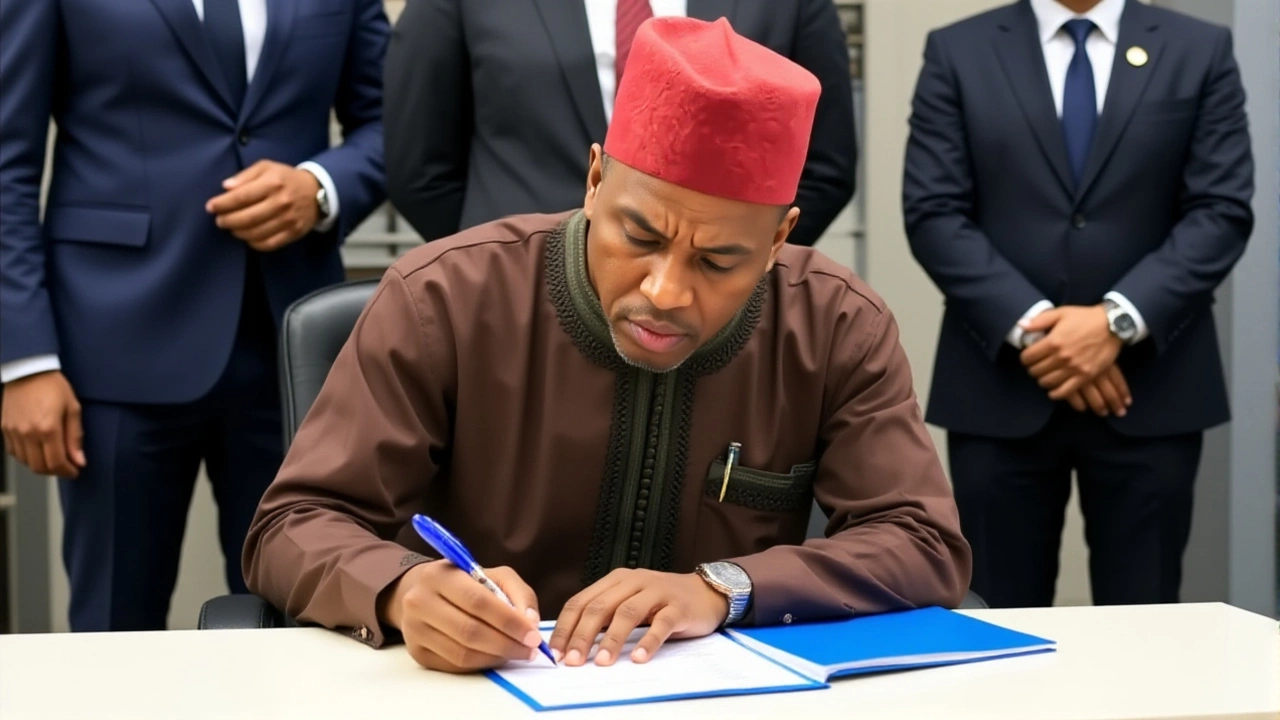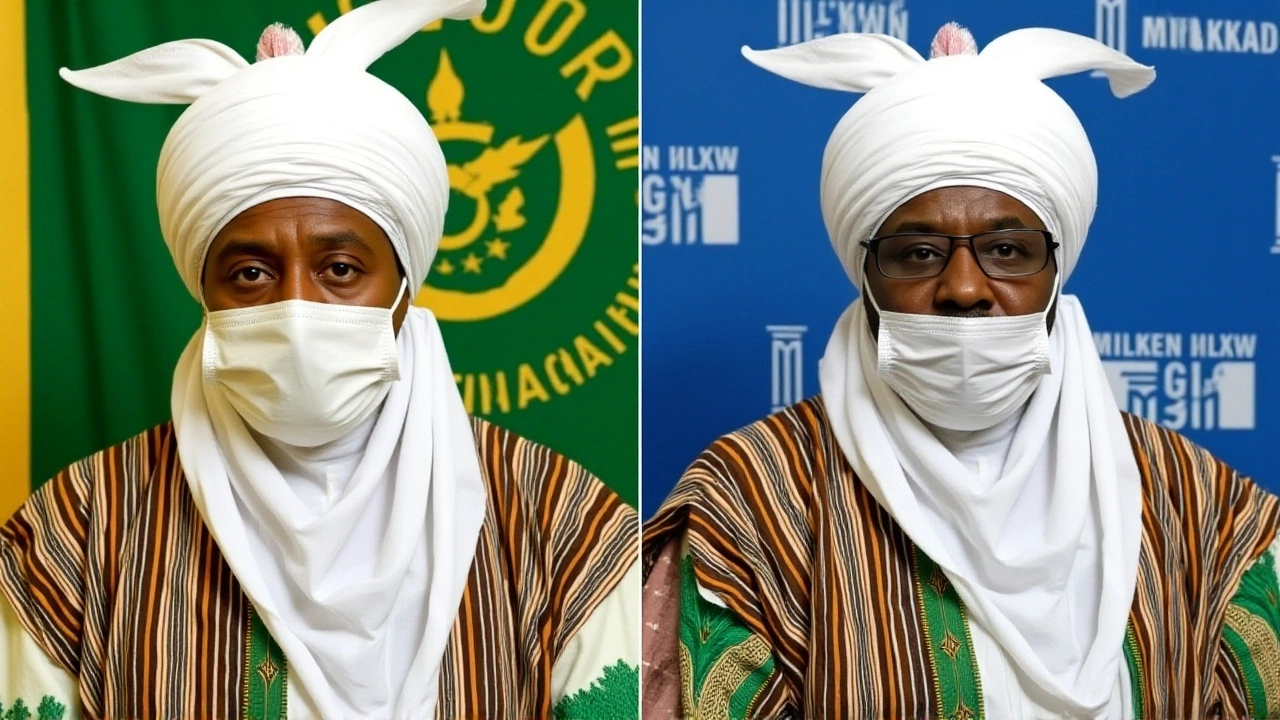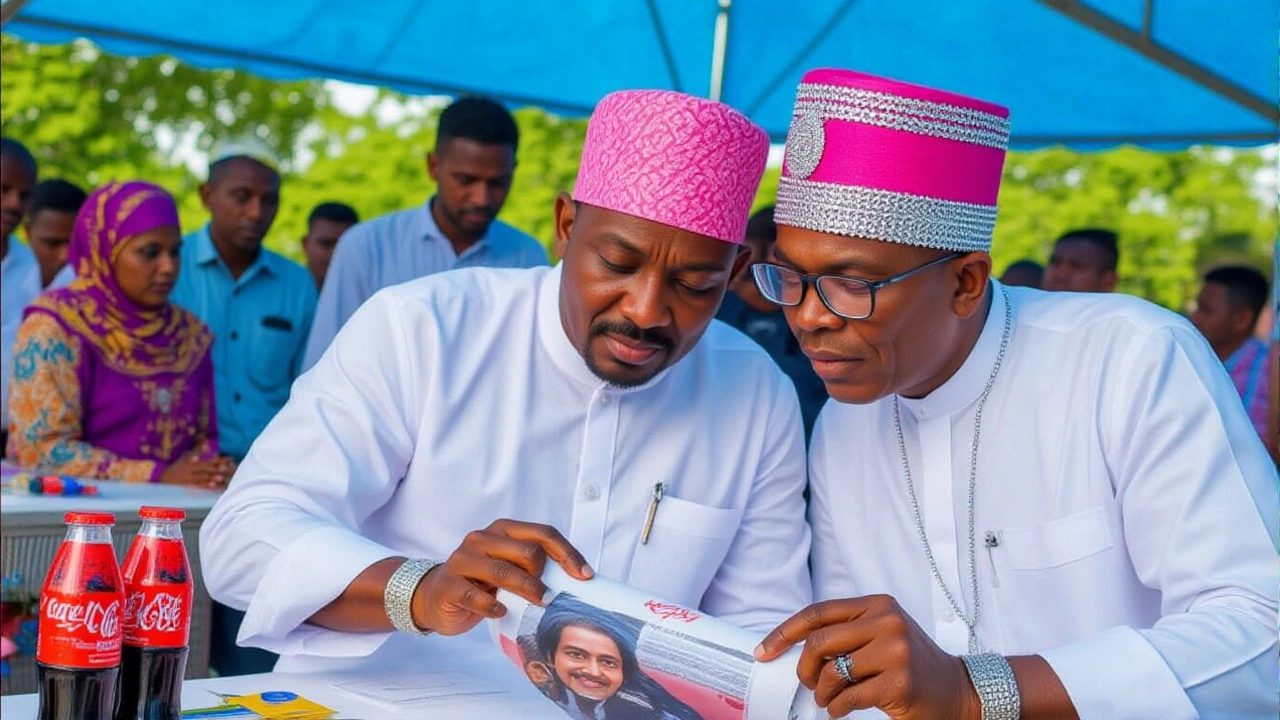On October 25, 2025, at precisely 10:00 AM WAT during the opening of KANFEST (Kalankuwa) 2025Kano Trade Fair grounds, Abba Kabir Yusuf, Governor of Kano State, dropped a cultural bombshell: the Durbar Festival—a centuries-old tradition inscribed by UNESCO in 2016—is coming back. Not as a suggestion. Not as a hope. But as a legal mandate. The Emirs of Kano, Rano, Gaya, and Karaye emirates now have no choice. They must revive the dazzling horse parades, the thunderous drumming, the swirling robes of red and gold that once filled the streets of northern Nigeria’s most storied city. After four years of silence, the drums are set to beat again.
Why the Durbar Matters—Beyond the Horses
The Durbar Festival isn’t just spectacle. It’s the living pulse of Kano’s identity. For generations, it marked the end of Ramadan and the end of the Hajj, a public display of loyalty, faith, and heritage where emirs rode in procession, armed retainers shouted ancient chants, and tens of thousands gathered—not just to watch, but to belong. When the Kano State Police Command suspended the festival in 2021, citing threats from Boko Haram and Islamic State West Africa Province (ISWAP), the city didn’t just lose a parade. It lost a ritual of unity. Schools closed. Markets went quiet. Families stopped traveling. The economic toll? Roughly ₦2.5 billion a year in lost tourism, crafts, hospitality, and vendor income—over 15,000 jobs vanished like smoke.
The Security Gamble
Here’s the twist: Yusuf didn’t just say "bring it back." He laid out a blueprint for safety so tight, it’s almost military. The state has already spent months upgrading infrastructure: blast walls around ceremonial grounds, biometric surveillance at entry points, and now—500 extra armed police, 200 new CCTV cameras, and dedicated emergency medical units stationed at all four emirate venues. The Kano State Security Committee, chaired by Yusuf himself, will review and approve every Durbar plan 90 days in advance. The first reinstated events? Eid al-Fitr 2026 on June 6 and Eid al-Adha 2026 on June 16. That’s not random. It’s calculated. The state’s security architecture, Yusuf told reporters, has been "reengineered" since his September 15 summit with former National Security Adviser Major General Nuhu Ribadu (rtd). The intelligence says it’s safe. Now, they’re betting their reputation on it.

Who’s In, Who’s Out
All four emirs were present at KANFEST 2025. Alhaji Aminu Ado Bayero, Emir of Kano, nodded solemnly. So did Alhaji Muhammad Tukur of Rano, Alhaji Ibrahim Abba of Gaya, and Alhaji Nasiru Muhammad of Karaye. Their public pledges weren’t just politeness—they were political necessity. These emirs wield spiritual authority. Their compliance signals to millions that this isn’t just a government order. It’s a cultural revival.
But not everyone’s cheering. The Civil Liberties Organisation (CLO) Kano chapter welcomed the move—but warned: "Safety can’t be assumed. It must be proven." Malam Ibrahim Shehu, CLO’s director, pointed to past failures. "We’ve seen promises before. This time, the benchmarks must be public. The checkpoints, the patrols, the drone coverage—let the people see it."
The Economic Surge Coming
Commissioner of Tourism Alhaji Kabiru Alhassan doesn’t mince words: "We’re not just restoring tradition. We’re reigniting an engine." The state has earmarked ₦750 million from its 2026 supplementary budget—money for new communication gear for mounted police, armored vehicles for rapid response, and training for local guides and artisans. Projections? A 30% revenue jump in 2026. That’s ₦3.25 billion in new income. Think of it: a single weekend of Durbar could fund a rural clinic, or a dozen new schools. That’s the real power here—not the horses, not the drums, but the money that flows when people feel safe enough to come home.

What’s Next
The next critical moment? November 3, 2025. That’s when the Kano State Security Committee meets to approve the final security protocols. If they greenlight the plans, the Durbar will return with full force. If they don’t? The Emirs will have to wait another year. And that’s where the pressure lies. Yusuf didn’t just issue an order. He tied his political legacy to this moment. The world is watching. So are the people of Kano.
Frequently Asked Questions
Why was the Durbar Festival suspended for four years?
The Kano State Police Command suspended the festival from 2021 to 2024 due to credible intelligence linking large public gatherings to potential attacks by Boko Haram and ISWAP. Previous Durbar events had been targeted, and the state lacked the security infrastructure to guarantee safety. The hiatus was a preventive measure, but it came at a steep cultural and economic cost.
How much money does the Durbar Festival generate for Kano State?
Historically, the Durbar Festival contributes approximately ₦2.5 billion annually to Kano’s economy through tourism, hospitality, handicraft sales, and vendor income. With the 2026 revival and enhanced security, projections suggest a 30% increase—bringing in an estimated ₦3.25 billion. This supports over 15,000 direct and indirect jobs, from horse trainers to textile sellers.
What new security measures are being implemented for the 2026 Durbar?
The state has deployed 500 additional armed police, installed 200 CCTV cameras at key venues, constructed blast walls, and established emergency medical units at each emirate’s Durbar site. Mounted police units are receiving modern communication devices, and joint military-police task forces will monitor movement around ceremonial grounds. All plans must be submitted to the Kano State Security Committee 90 days in advance for approval.
Who has the final authority to approve the Durbar Festival’s return?
While the Emirs organize the event, final approval rests with the Kano State Security Committee, chaired by Governor Abba Kabir Yusuf. The committee will review security protocols on November 3, 2025. Without their clearance, the festival cannot proceed—even if the Emirs are ready. This ensures accountability and centralized coordination.
Is UNESCO involved in the revival of the Durbar Festival?
UNESCO is not directly managing the revival, but its 2016 designation of the Durbar as Intangible Cultural Heritage gives the festival global recognition and legitimacy. The state is leveraging this status to attract international tourism and cultural funding. UNESCO’s role remains advisory; the operational responsibility lies entirely with Kano State authorities and the Emirs.
What happens if the Emirs refuse to comply with the governor’s order?
While the Emirs hold traditional authority, they operate under the constitutional framework of Kano State. Non-compliance could trigger legal consequences under state law, including potential suspension of state-funded privileges, loss of official recognition, or even civil penalties. Governor Yusuf’s executive order carries the weight of state law, making compliance not just cultural—but compulsory.
